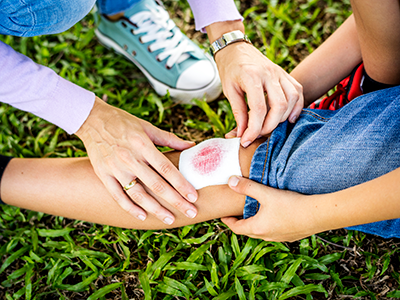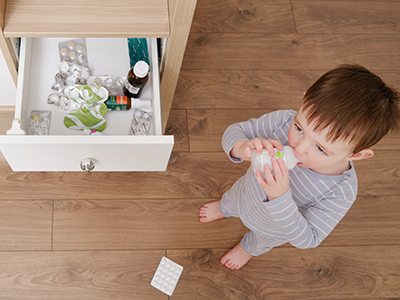If you’re a parent, chances are your kids love to splash around in the water, whether it’s at the pool, the beach or even just playing with the garden hose. But one thing that might not be on your radar is swimmer’s ear. This common condition, also known as otitis externa, can quickly turn water fun into an uncomfortable experience for your child. Don’t worry, though — knowing what to look out for and how to prevent it can make all the difference.
What exactly is swimmer’s ear?
Swimmer’s ear is an infection or irritation of the ear canal, the passage that connects the outer ear to the eardrum. Unlike a typical middle ear infection, which happens deeper inside the ear, this condition affects the outer canal and is often caused by water that gets trapped after swimming or bathing. For kids, who seem to have an endless fascination with water, it’s especially common. Fortunately, it’s also preventable and treatable — if you know what to do.
What causes swimmer’s ear?
The ear canal is a sensitive place, and when water lingers there, it creates the perfect environment for bacteria and fungi to grow. Here are some common factors that can lead to swimmer’s ear:
- Too much water play: Long hours in the pool, lake or even bathtub can leave water trapped in your child’s ears.
- Scratches inside the ear: If your child uses cotton swabs or other objects to dig into their ears, it can create tiny injuries that allow bacteria in.
- Removing earwax: While earwax might seem “icky,” it actually helps protect the ear canal. Over-cleaning can remove this natural barrier.
- Skin conditions: If your child has conditions like eczema, their ear canal might be more vulnerable to infections.
- Wearing devices: Items like earbuds or swim caps that fit snugly can trap moisture inside the ear.
Spotting the signs of swimmer’s ear
Swimmer’s ear can start gently but escalate quickly, so it’s good to know the symptoms:
Mild symptoms
- Your child might complain of a tickling or itchy feeling in their ear.
- The ear may appear slightly red or irritated.
- They might mention a feeling that their ear is “full.”
Moderate symptoms
- Pain, especially when the outer ear is touched or tugged.
- Drainage — sometimes clear, sometimes pus-like — coming from the ear.
- Swelling that makes the ear canal look smaller or feel blocked.
Severe symptoms
- Intense pain that might spread to the jaw or neck.
- A completely blocked ear canal, which could cause temporary hearing trouble.
- Fever, which may indicate a more serious infection.
How to prevent swimmer’s ear
As the saying goes, an ounce of prevention is worth a pound of cure! Here are some ways to help keep swimmer’s ear at bay:
- Dry ears thoroughly: After swimming or bathing, tilt your child’s head from side to side to help water drain out. You can also use a soft towel or even a hair dryer on a low, cool setting held at a safe distance.
- Invest in ear protection: Waterproof earplugs or swim caps can work wonders for keeping water out.
- Say no to cotton swabs: Remind your kids (and yourself!) not to poke around in their ears, as it can do more harm than good.
- Keep ears clean — but not too clean: Let the natural earwax do its job while ensuring there isn’t excessive buildup.
- Consider preventive drops: Many pharmacies sell over-the-counter swimmer’s ear drops that can help dry out moisture after swimming sessions.
What should I do if my child gets swimmer’s ear?
Even with the best prevention efforts, sometimes swimmer’s ear strikes. Here’s how to handle it:
At-home remedies
- Dry the ear: Keep your child’s ear canal dry and free from additional moisture.
- Warm compress: A soft, warm compress can soothe discomfort and reduce swelling.
- Pain relief: Over-the-counter medications like ibuprofen can ease pain while you wait for the infection to clear up.
When to see a doctor
- If symptoms seem to worsen or last more than a couple of days, it’s time to call the pediatrician.
- Doctors may prescribe antibiotic ear drops to clear up the infection or even clean the ear canal if necessary.
Why it’s important to act quickly
Left untreated, swimmer’s ear can lead to complications like persistent infections, spread of bacteria to nearby tissues, or even temporary hearing loss. But don’t panic — most cases are easy to resolve with prompt care and attention.
 https://riseandshine.childrensnational.org/wp-content/uploads/2025/10/boy-with-mouthguard-feature.jpg
300
400
Danielle Robbins
https://riseandshine.childrensnational.org/wp-content/uploads/2017/11/childrens_riseandshine_logo.jpg
Danielle Robbins2025-10-15 14:56:352025-10-15 14:56:35What to do if your child knocks out a tooth: Emergency dental guide for parents
https://riseandshine.childrensnational.org/wp-content/uploads/2025/10/boy-with-mouthguard-feature.jpg
300
400
Danielle Robbins
https://riseandshine.childrensnational.org/wp-content/uploads/2017/11/childrens_riseandshine_logo.jpg
Danielle Robbins2025-10-15 14:56:352025-10-15 14:56:35What to do if your child knocks out a tooth: Emergency dental guide for parents





















Leave a Comment
Want to join the discussion?Feel free to contribute!